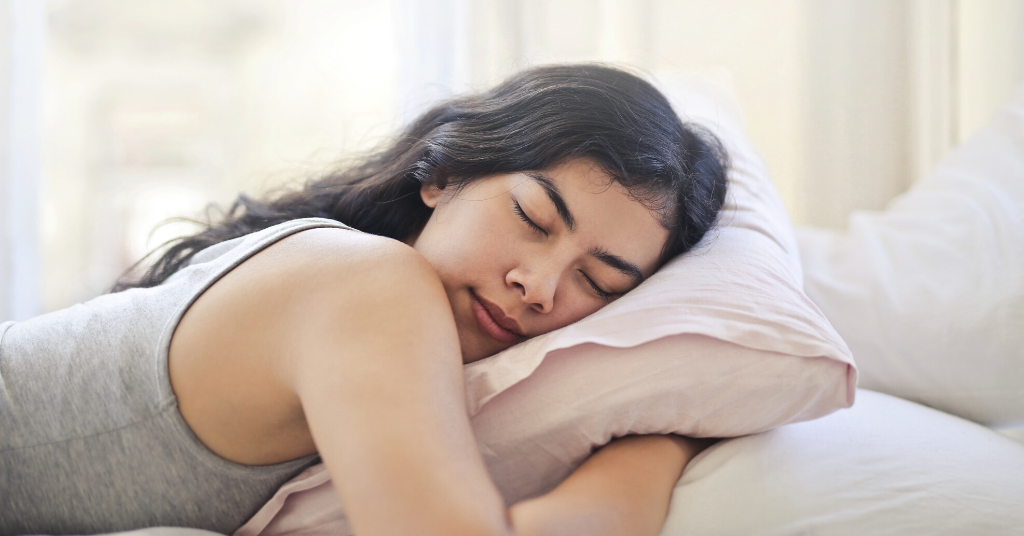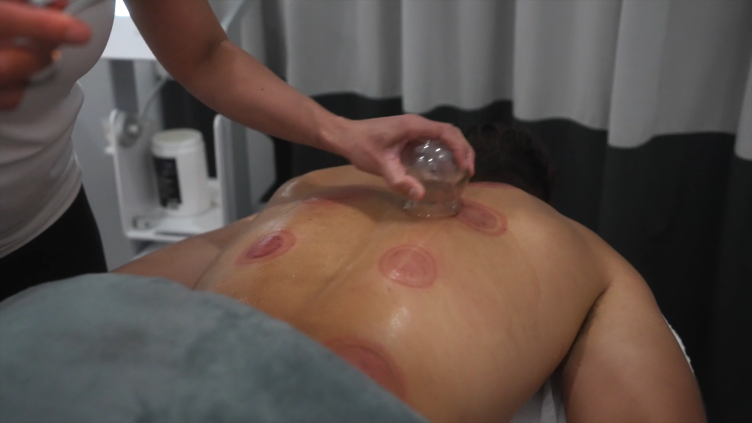Learn How Sleep & Immunity are Linked For Optimum Health!
Sleep. We all wish we had more of it. Yet it’s still. So. Elusive. And while yawning and feeling tired all the time can be a bummer, a lack of zzz’s can actually have a big impact on your health. Experts say you should aim to get between seven and eight hours of shut-eye each night, but what does that really do for you?
1. Sleep Can Boost Your Immune System
When your body gets the sleep it needs, your immune cells and proteins get the rest they need to fight off whatever comes their way — like colds or the flu. And according to the well-rested sleep specialists over at the American Academy of Sleep Medicine, proper sleep can also make vaccines more effective, which is obviously a plus.
2. Gaining Zzz’s Can Help Prevent Weight Gain
Racking up eight full hours of sleep isn’t going to result in losing the pounds by itself, but it can help your body from packing on the pounds. If you don’t get enough sleep, your body produces ghrelin, a hormone that boosts appetite. Your body also decreases the production of leptin, a hormone that tells you you’re full. Put ’em both together and that’s one dangerous combo for late-night snacking, my friend. Plus, when you don’t sleep enough you get more stressed and don’t have the energy to fight off junk food cravings. We’re exhausted just thinking about it.
3. Sleep Can Strengthen Your Heart
Not getting enough sleep can lead to heart health problems like high blood pressure or heart attacks. That’s because lack of sleep can cause your body to release cortisol, a stress hormone that triggers your heart to work harder. Just like your immune system, your heart needs rest in order to function powerfully and properly. Just another reason to “heart” sleep.
4. Better Sleep = Better Mood
There is some truth in the old saying, “Getting up on the right side of the bed.” It has nothing to do with which side of the bed you roll out of, but sleeping can lead to good moods. And really, it makes sense. If you sleep well, you wake up feeling rested. Being rested helps your energy levels soar. When your energy is up, life’s little challenges won’t annoy you as much. When you’re not annoyed, you’re not as angry. If you’re not angry, you’re happy. So, go to bed early and everyone around you will thank you for it.
5. Sleeping Can Increase Productivity
You may think you’re wowing your boss by burning the midnight oil, but putting off a good night’s rest could be having an adverse effect at work or school. In fact, sleep has been linked to improved concentration and higher cognitive function, both of which can help you be successful at work. But one restless night can leave you feeling frazzled, making it more likely that you’ll make mistakes that a pot of coffee won’t be able to fix. Speaking of coffee, the more tired you feel, the more likely you are to reach for that afternoon cup. And while that may seem to fix the afternoon crash problem you experience, the extra caffeine late in the day could set you up for another sleepless night. Talk about a counterproductive cycle.
6. Lack of Sleep Can Be Dangerous. Literally.
According to a study from the AAA Foundation for Traffic Safety, you’re twice as likely to get in a car accident when you’re cruising on six to seven hours of sleep compared to if you get a full eight hours. Sleeping less than five hours and your chances of a crash quadruple! That’s because your reaction time slows way down when your brain isn’t fully rested. We don’t know about you, but those statistics have us ready to climb into our PJs and hit the hay ASAP.
7. Sleep Can Increase Exercise Performance
Someone studied the effects of sleep deprivation on basketball players and guess what they found? When they didn’t sleep well, they weren’t very good basketball players. (#DUH) You might be thinking, ”So what? I’m only MVP in my dreams.” Well, sleep affects all types of exercise performance. Under-the-covers recovery helps with hand-eye coordination, reaction time, and muscle recovery. Plus, depriving yourself of sleep can have a negative impact on strength and power.
8. Sleep Improves Memory
Even though sleep gives your body the rest it needs, your mind is still hard at work. It’s actually processing and consolidating your memories from the day. If you don’t get enough sleep, who knows where those memories go. Or worse, your mind might actually create false memories.
The bottom line: Sleep is good. And necessary. Roy Kohler, MD, who specializes in sleep medicine at SCL Health in Montana, reaffirms all we know about the benefits of sleep, citing research that shows people who get less sleep tend to be heavier, eat more, have a higher BMI, and are more likely to be diabetic.
“Consistent sleep of seven hours a night is what’s recommended for adults just for daytime functioning—being on task, being alert for the day and being able to concentrate and not be so moody and tired during the day,” says Dr. Kohler.
Sleep Deprivation Linked to Immune Response
Research has demonstrated, however, that sleep deprivation hurts the body’s first immune response, or the innate immune system, which acts immediately to prevent the spread and movement of foreign pathogens.
One example is a study of exposure to the common cold virus exposure among two groups, one that had more than 7 hours of sleep and the other with less than 6 hours of sleep. The group that got less than 6 hours of nightly sleep for a week before exposure to the virus were four times more likely to be infected than the group that got more than 7 hours of nightly rest.
“The innate system works at the beginning,” Im explains. “It doesn’t care what type of organisms are infecting you. Chronic partial sleep deprivation may negatively affect this innate immune system more than the adaptive immune system.”
Dr. Ruth Benca, chair of the Department of Psychiatry & Human Behavior, pioneered studies in the 1980s and 1990’s revealing that sleep deprivation may be detrimental to this first-response immune system. Her work demonstrated no harm, however, to the adaptive immune system, which is the second response the body makes to combat specific threats like viruses.
“The white blood cells or proteins that are working as a barrier in innate immunity may be affected by sleep deprivation,” Dr. Benca says.
“People shouldn’t worry about not getting a good night’s sleep for one night or a couple of nights in these anxiety-provoking times.”
We have all heard the common wisdom that when we get cold or flu, recovery is helped by drinking plenty of liquids and rest. It turns out that the underlying causes of the benefits of sleep for getting better are well known based on scientific research. Among the restorative functions that occur during sleep, the immune system releases cytokines, proteins that are the body’s natural defense for fighting infections. What is less well-known is that sleeping poorly results in more susceptibility to infection, and likewise reduces the efficacy of vaccinations.
Reference:
www.sclhealth.org
www.ucihealth.org
www.psychologytoday.com








